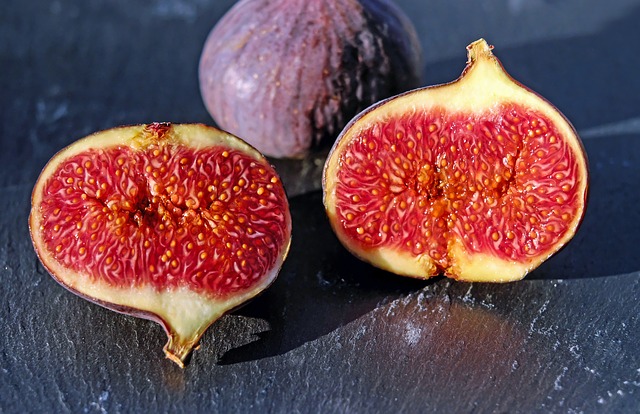5 health benefits of figs that can boost your health

It belongs to the mulberry family and is a relative of the ficus tree. The fig tree fruit has a unique sweet taste, soft texture with crunchy seeds. Fresh figs spoil rather quickly, so they are most often dried out. This creates nutritious dried fruits that you can eat all year round.
The fruit is characterized by its boll, a hole in the top that resembles a bud. Before refined sugar came along, figs were used as a sweetener. They are now added to many recipes to add a subtle and rich flavor to dishes.
What nutrients are in figs

As a natural product, figs are cholesterol and fat-free. It contains such important substances as vitamins of group B, A, and C, iron, potassium, calcium, organic acids, magnesium, and tannins. The calorie content of the fruit is approximately 37 Kcal. Dried figs are in third place in terms of potassium content after dates and nuts.
In addition, figs are rich in fructose, fiber, glucose, and beta-carotene, a natural coloring agent.
What are the beneficial properties of figs?

We have already examined the composition of the product, from which it can be seen that figs are one of the most useful fruits among the existing ones. The high content of nutrients can put the body in order. These are the main benefits of the fruit.
Reduces high blood pressure
Hypertension – high blood pressure – can cause strokes and heart problems. This is because the balance of sodium in the body is disturbed: there is either too much or too little of it. The first is most often found since this element is found in the form of salt in many foods. As we have noted, figs are rich in potassium, which can correct imbalances. To control blood pressure, experts recommend increasing the level of potassium in the body using a diet with figs. Also, the fruit is high in fiber, which helps to remove excess sodium from the body.
Improves digestion
The spectrum of gastrointestinal problems is very wide. Increasing fiber intake helps to address these issues. It has prebiotic properties, nourishing bacteria in the gut and thus improving overall gut health. Figs are also known for their laxative effects when consumed in large quantities.
Supports bone health
Since the fruit is high in potassium, calcium, magnesium, and phosphorus, it has a beneficial effect on bone density. Researchers have long confirmed that figs contain 3.2 times more of these minerals than other fruits. This property of the fruits helps to make bones, teeth, and nails str, prevent fractures and prevent osteoporosis. In addition, it is known that a diet rich in potassium can prevent its excretion from the body, triggered by the consumption of foods high in salt.
It helps build quality diets and control weight
Figs containing vitamins, minerals, and fiber should be added to your diet if you want to improve the nutritional value of your diet. They may also help control weight. They keep you full for longer, reduce hunger, and prevent the need for frequent snacking. Also, these essential nutrients improve blood circulation, which supports a healthy body.
Has antioxidant properties
Antioxidants play the role of a kind of shield in the body, preventing the penetration of infections and the development of diseases. Fresh figs contain antioxidant plant compounds called polyphenols. They prevent oxygen from reacting with other chemicals. By controlling the key points of oxidation, these elements protect cells and tissues from damage.
Things to look out for when eating figs

First of all, as we have already mentioned, figs have a laxative effect. Therefore, they should not be eaten in large quantities: a few pieces a day is the best option.
In addition, they can cause allergies in people who cannot tolerate birch pollen and natural latex. As they interact with other substances, they should be eaten with caution. Also, figs can be unethical for vegans: some plant varieties are pollinated by wasps that die in the process. However, the industry grows the fruit without wasp pollen.
If your doctor has prescribed a diet low in oxalates – substances that are ultimately the product of glycine and ascorbic acid metabolism – it is best to abstain from figs. Also, suppose you have been prescribed blood thinners. In that case, you should not eat figs, as they contain vitamin K. People on special diets should be particularly cautious about introducing fruit into their diet. You should consult a nutritionist who will approve a change in eating habits.




